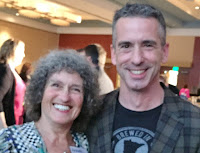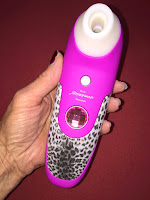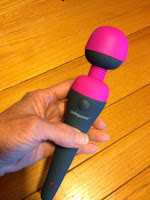How can I tell my man what I want? If I get even slightly turned on, he takes it as a sign that he can simply proceed straight to the gate for take-off. He’ll stimulate me for 30 seconds and get inside me. And in my mind I’m thinking: ‘I wish he would move a little gently, have his hands all over my body. Then I might ask him to kiss me in a certain spot, so I’ll give him a sort of hint of what would feel good.’ Sometimes he gets it, and he responds. But other times – he doesn’t seem to hear me.
| Esther Perel |
If everyone communicates their needs openly, everyone gains.
Women are constantly told that they need to tell their partner what feels good to them sexually, to be proactive with their desire, to be more assertive and bold. For many people, this is easier said than done. It can feel safer to remain passive and take from our sexual encounters what we can get. Women often tell me that they really like to linger in the pleasures of the preliminaries, that they like them as much, if not more, than the act itself, yet they tend to accommodate their partner and abdicate their wants. They tend to go along with a more stereotypically male definition of sex, where foreplay is the mere introduction to the ‘real’ thing.
However, it is precisely the anticipation, the seduction, the playful touch, the kissing, stroking, and gazing into each other’s eyes – all the stuff that fuels desire and excitement – that make them feel desired. It is those exquisite aspects of foreplay that, for women, often make up the real thing.
Many of the women I work with in my practice worry that they take too long to climax, that their partner will be bored. Once he reaches orgasm, they give up theirs as if his rhythm defines hers. They fake their orgasms, they pretend. They tell me: ‘His ego is too fragile’. ‘I don’t think he can hear me’. ‘I don’t want to hurt him.’ Or: ‘I don’t want him to be angry and to reject me.’ Or even, sometimes, ‘I don’t know what I want, all I know is that I don’t want what I have.’ Men like to hear the guidance, but they can’t stand the criticism. It eats away at their sexual confidence. ‘No sooner do I touch her than she starts dictating to me what to do. I feel so tense following instructions. This tickles, this rubs. Here, she is too dry; there, she is too wet. Slower, faster, harder, softer, it doesn’t stop.’
Obviously, it’s tough on the partners too — these sorts of requests can come across as commands at a time when both people in the room are at their most vulnerable.
Talk about your preferences and desires before and after intimate moments, not only during them. For women and for men, when we feel sexually frustrated we are likely to be irritable, less patient, more aggressive and tactless. Instead of saying ‘I would like more stroking’, we say: ‘Why do you always go straight for my breasts?’ or ‘You never kiss me’ or the crowning put-down: ‘I never had this problem with my previous girlfriend.’ As a rule, sexual communication around what we want and how we want it is better discussed outside the bedroom, not while we are engaging with each other. Expressing appreciation for having your partner in your life is critical to helping him or her feel confident to take in all your needs, without seeing your complaint as a diminishment of his masculinity or her femininity.
Utilize non-verbal communication.I am a therapist, so I obviously value talking, but I also challenge the insistence of the verbal as the superior way to communicate. We speak with our bodies, with actions, with a gaze. The body, as a matter of fact, is our mother tongue; we express so much in the physical language long before we can utter one word. While I think that talking is important for couples, we are facing a situation where sharing is not a choice but a mandate. There is this perceived wisdom that if you don’t share or talk, you are not close. That is a false assumption and one that puts a lot of pressure on men in particular. There’s a lot to gain from showing your partner, non-verbally, what you like. Gently take his or her hand, guide it, move around so that you have got it where you like it.
Although this is a heterosexual example, I also see examples of a similar dynamic in same sex couples — where one partner capitulates to the other’s needs, or simply does not feel comfortable communicating what he or she wants to experience. Both men and women fall in the trap of believing that if you need to discuss methods, it means there is not a good sexual connection. How about rethinking that? Doesn’t it make more sense that if you feel you can communicate your wants openly, that’s the ‘real’ sign of a good sexual vibe?
Do you effectively communicate your physical and emotional needs to your partner(s)? If not, what’s holding you back? What tactics have been most successful to getting what you want? Leave your comments below and join the conversation.
Perel is a two-time TED speaker: Her critically acclaimed viral first TED talk reached nearly 5 million viewers in the first year and recently released second one, on the topic of infidelity, was viewed nearly 2 million times in the first month. Watch her here:


























